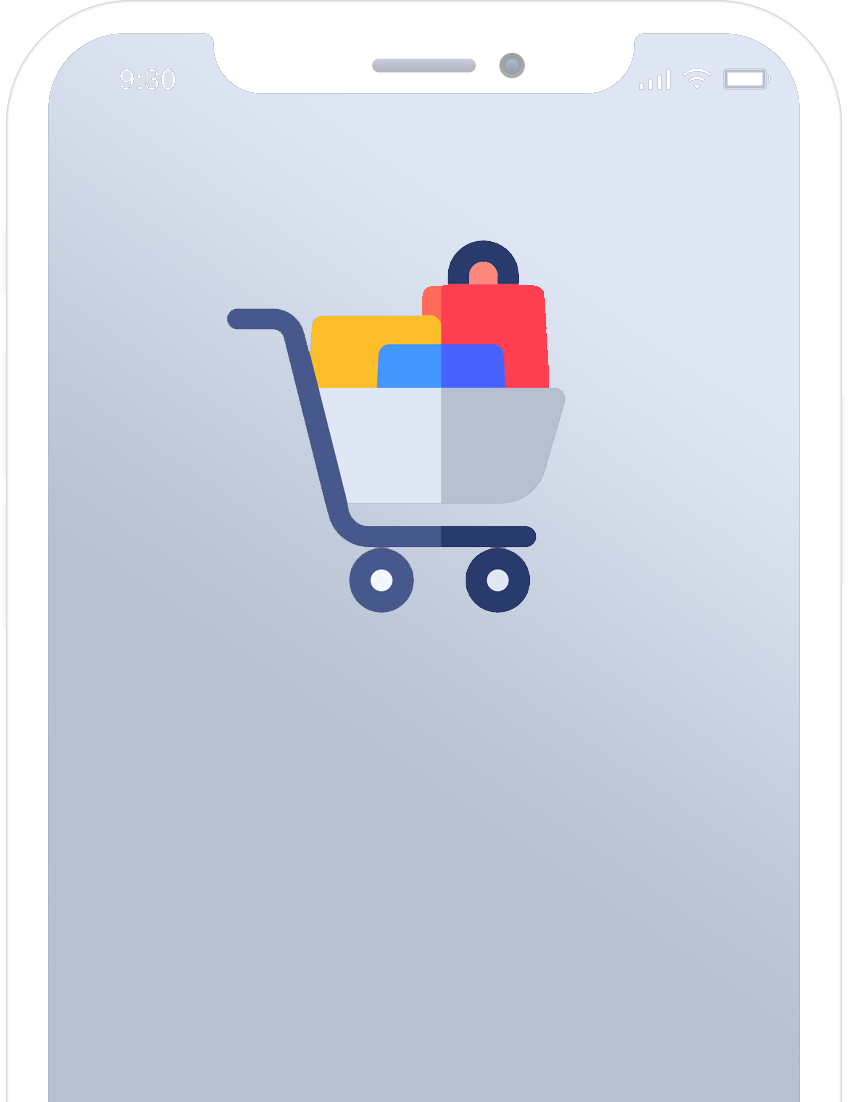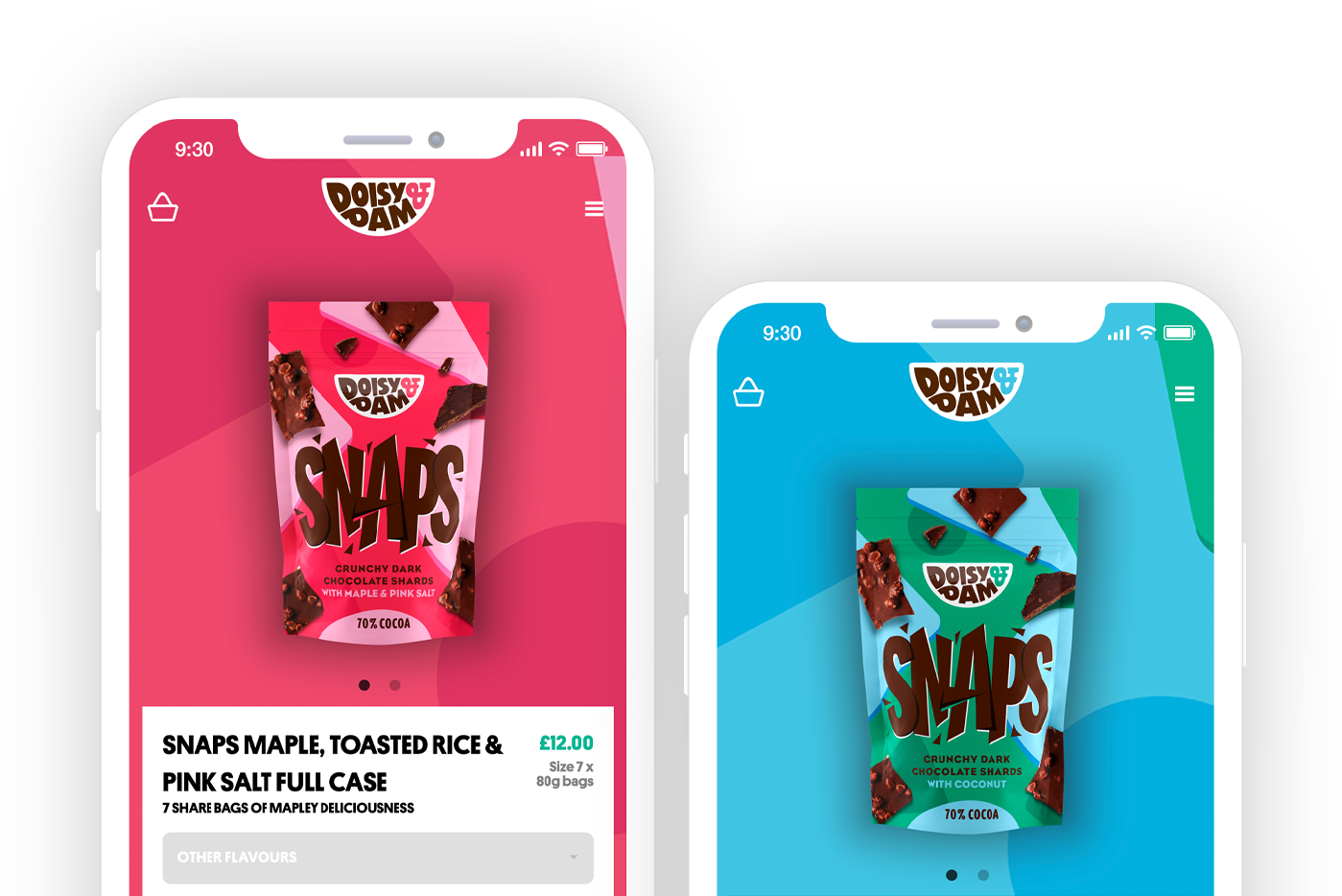Custom Store Project
Design and launch a bespoke store.


 Nic Dunn |
CEO - Charle Agency
Nic Dunn |
CEO - Charle AgencyStarting your own business takes a lot of time, knowledge, and risk. Dropping your job to pursue entrepreneurship full-time might be too much for most of us without a decent savings account to support ourselves before the business turns a profit. The best way to dip your toes in the world of digital entrepreneurship is to run a Shopify side hustle.
Shopify is an easy platform to master. Running a side hustle business there won’t take much time and will help you gradually learn everything you need to know about digital commerce. You don’t even have to create a unique idea to try and start a business on Shopify.
Here are five Shopify side hustle ideas you can use to get your foot in the door of entrepreneurship.

Shopify is primarily an ecommerce platform, so the most obvious way to make money with it is to sell products. Unless you want to pay for manufacturing and storage, dropshipping is one of the best Shopify business ideas.
Dropshipping has been around for as long as ecommerce has. The basic premise is simple — you sell somebody else’s products on your site at a premium, let the manufacturer handle fulfilment, and pocket the difference between your price and that of the manufacturer. Essentially, you do all the digital marketing, and they do the business side of things.
The reason you could make a lot of money with a dropshipping side hustle is that few manufacturers had their products listed online. Dropshippers could take advantage of that by monopolising a whole innovative sales channel. Now that most companies sell their wares online, there’s no reason to purchase through a drop shipper.
Another popular type of dropshipping used to be selling affordable goods from overseas manufacturers on a local market. That too became harder as overseas markeplaces like AliExpress became popular in the US and EU markets.
Right now, if you try to do these types of dropshipping, you’re likely to compete with thousands of people for a relatively small user base. The margins might be pretty thin, too.
There’s another type of dropshipping that might work well for you — reverse dropshipping. Instead of selling products from developing countries in your home market, you do the opposite: sell local goods overseas.
It’s a bit more difficult to manage logistics and returns, but the benefits of doing this far outweigh the drawbacks. You’ll be working with very little competition and can earn more money per sale as you’re working with pricier goods. You also don’t have to worry about the reliability of the supplier as they’re a local brand.
Your best bet with this type of dropshipping is to find an overseas market that doesn’t have access to a brand they love. It can be luxury goods, professional tools, or even popular snacks.
To find those areas of opportunity, use Google Trends or Keyword Planner to look up what brands are popular in different countries. Once you find a suitable combination of a brand and a country, do a bit of googling to confirm these countries don’t have a lot of offers for those brands.
The best marketing channel for dropshipping and other Shopify side hustles is organic search traffic. Ranking well for branded terms on local Google results will provide a constant stream of new customers and a better ROI than most other channels.
Shopify takes most of technical search optimization out of the question, you’ll have to work on optimizing pages for the right keywords and building links in the local market. You’ll also need an accurate rank tracker to analyze your Shopify site’s positions against the competitors.
With the right approach, you’ll get your products up on local SERP and brining you a steady flow of supplemental income.

Even though you don’t handle most of the business logistics as a drop shipper, doing business with an overseas country can be difficult. If you feel that’s not for you, there’s an easier Shopify side hustle idea: selling digital products.
The best part of it is that you don’t have to deal with logistics at all. The sale is made with digital copies that a user downloads and can be made worldwide. The profits from the sale may be a bit smaller than with dropshipping, especially if you’re selling luxury goods. But that largely depends on what digital products you’re selling and what the market rates for them are.
There’s a place for everyone in the digital products market.
Are you a digital marketer? You can sell detailed eBooks on doing marketing right. Are you an HVAC technician? You can sell guides on how to repair, clean, or service equipment. Are you a designer? You can sell printable patterns. You can also sell crochet patterns, travel checklists, Notion templates for planning, and anything you think will help your customers.
Put a bit of work into your digital products to make them look elegant, not just functional, and you’ll have a returning customer base. With a good product and sales automation, you won’t even need to pay that much attention to the store’s operation, making this one of the best Shopify passive income ideas.
Attracting new customers will take a bit of work in search engine optimisation to rank high for keywords associated with your products. You’ll want to look into high-ranking listicles that explore the best products in your category. Offer to review your digital products, and you might get customers through those articles.
Create informational content on your site that focuses on keywords related to your niche. Explain in detail how to do something, show how your product can help, and link to it.
Another area is social media advertising. Showcase your products and how to use them in a video on a platform your target demographic spends time on and provide a link to buy them.

A perfect mix of the two previous Shopify business ideas is running a print-on-demand business. In this business model, you’ll be selling designs that can be printed on something and shipped to the customer.
Some POD companies offer a proprietary design tool that lets users lay out whatever they want on the object. But that’s too much trouble for a side hustle. Your best bet is either creating a design yourself if you’re skilled in this or contracting a designer to create something for your business. Doing an AI-generated design can also be an option, but you have to experiment a lot with the prompt to get a perfect fit.
Then, you can offer to print the designs on mugs, beanies, tote bags, sweatshirts, t-shirts, and anything else you can find.
Shopify can integrate with print-on-demand providers like Printful and Printify. You’ll transfer the order to a company like this, and it will handle printing and shipments. You will handle returns and customer service.
No matter what company you choose to work with, it’s best to test their services first to make sure the product quality is in line with your requirements.
Promoting your services comes down to a combination of SEO, social media marketing, and paid advertising if you have the budget for it.

In most Shopify store ideas, you’ll be making one-off sales through outbound marketing channels and resort to retargeting or email marketing to try to get them to repeat the purchase. This one can provide a stable stream of income as the business model requires a subscription.
The premise of a subscription box business is pretty simple. Instead of customers exploring the products in your niche on their own, they get a curated discovery experience. You ship them a box of items, typically monthly or quarterly. They get charged a subscription fee and get to discover interesting items. It’s non-demanding for the customer, so it’s no wonder that 29% of UK consumers subscribe to at least one.
The subscription boxes you can try to sell can include arts and crafts supplies, snacks from all corners of the world, scented candles, or fun socks. Choosing the niche is a matter of knowing products from it, being able to source them, and finding a demand for them.
A good niche to look into is kids' developmental toys. Children will never get tired of experiencing new toys, and there are a lot of options to choose from.
If you want to go with a monthly subscription with different items in each pack, it might be harder to start. Juggling a full-time job and sourcing multiple materials every month can be too much of a task for most of us.
To make this Shopify side hustle idea easier, try either going for a quarterly subscription or a monthly subscription for the same items. This can be underwear or shaving accessories, as your customers would likely need identical items each month and would appreciate not having to shop for them.
Before committing to a specific niche, look up search volume and offers available for the keyword like “your niche subscription box.” Once you find a niche that you like that has demand and few offers, start building your Shopify website, finding things to put into subscription boxes, and planning them out.
A combination of marketing methods would work best to attract new customers. Feel free to put a heavier emphasis on the marketing method that you’re most skilled at or that you want to improve.
A good idea would be to look for listicles that rank well and talk about the best subscription boxes in your niche. Contact the editors to showcase your box on articles that already do well in search, and you’ll get a stream of new clients with very little work.

If you’ve always wanted to start your own agency on the side but never had the nerve to go all-in and hire employees, generative AI technology now allows you to experiment with this business idea. There’s a lot you can do with AI and a Shopify website for your services.
Advanced AI users can offer services in creating content, art, or music for small businesses like other Shopify stores. Creating AI-based chatbots might require more knowledge than prompting, but you can do most of the work on specialised platforms like ManyChat.
If you are skilled in coding, you can try creating your own ChatGPT wrapper to help with specific needs in one industry. For instance, training an AI assistant for small businesses or a personalised model of an ideal customer profile.
The downside of most AI side hustles is that you’re essentially going into freelancing or agency business and will have to work with all the ups and downs of them, like invoicing problems and customer turnover. The upside is that you can easily pivot from an AI-based side hustle into a full-fledged agency if things go smoothly.
To attract new customers, a mix of digital marketing methods like SEO and social media marketing will do the trick.
Since it’s the only B2B Shopify side hustle idea, you can use cold outreach here. Find contacts of the business owner and pitch your services to them. Since you’re working with AI, showcasing a bit of what you can do won’t take a lot of time, and you can personalise each pitch. It would be more impressive to potential customers.
Around 70% of businesses fail in the first three years of operation, either because the owner wasn’t able to manage it well or because the business didn’t find the right market. Starting a Shopify side hustle instead of going all-in on a business idea lets you test it safely and learn business-related skills in practice.
If it doesn’t work out, it's not a big deal. If it does, you can either go at it full-time or leave it as a source of supplemental income.

